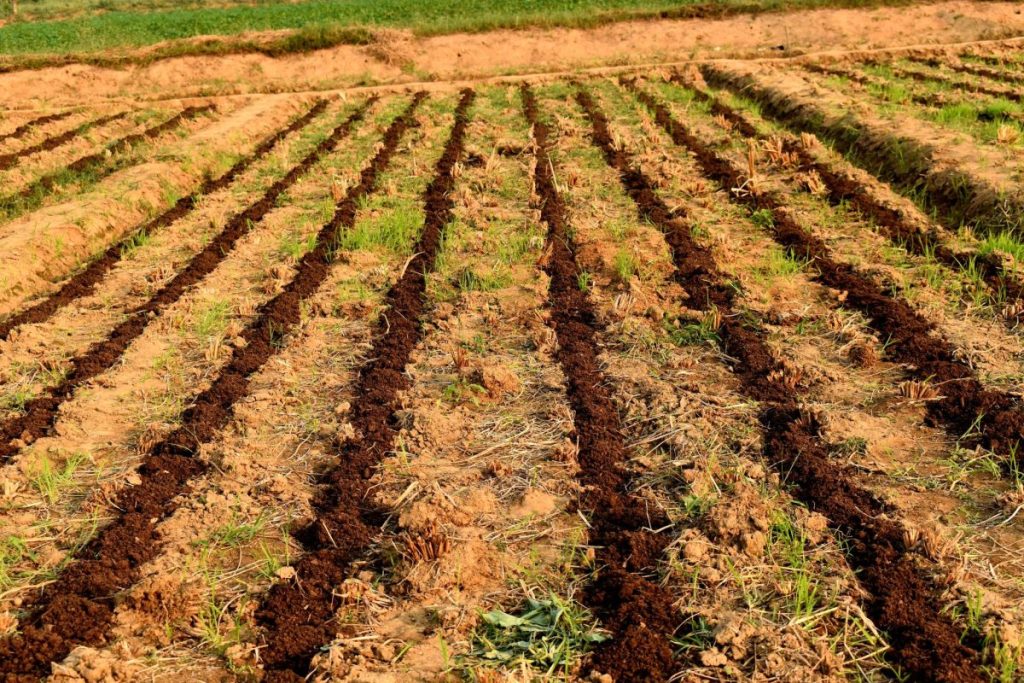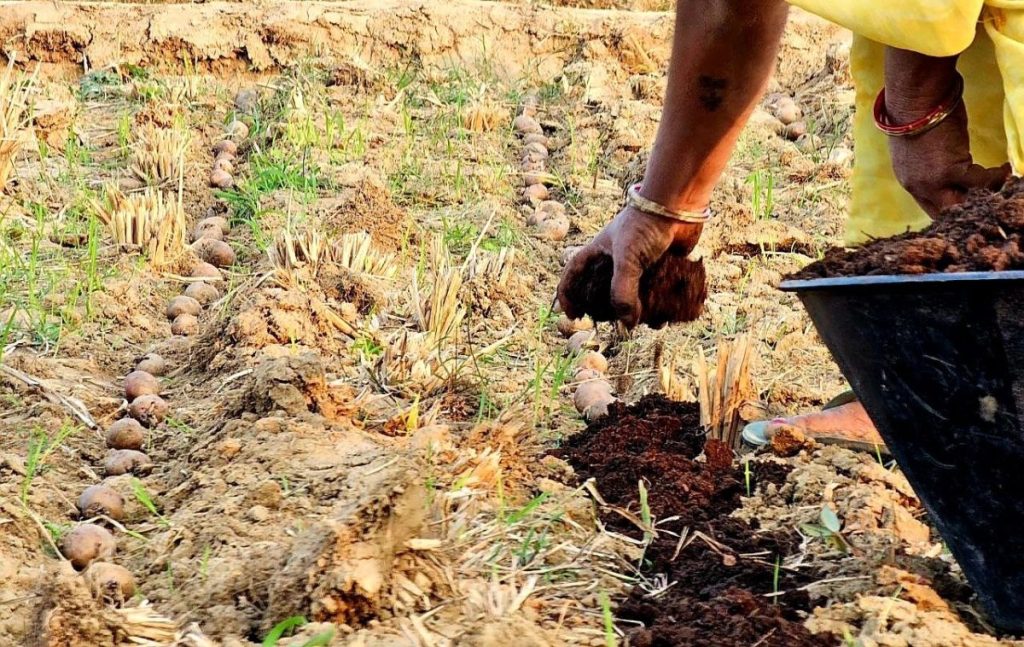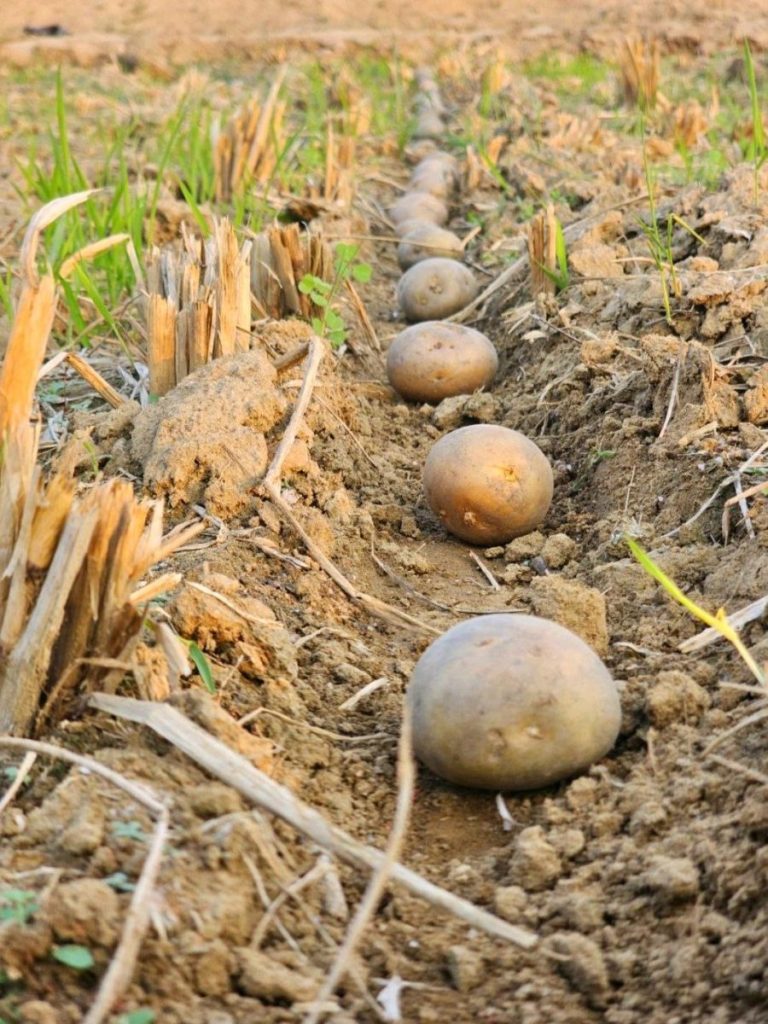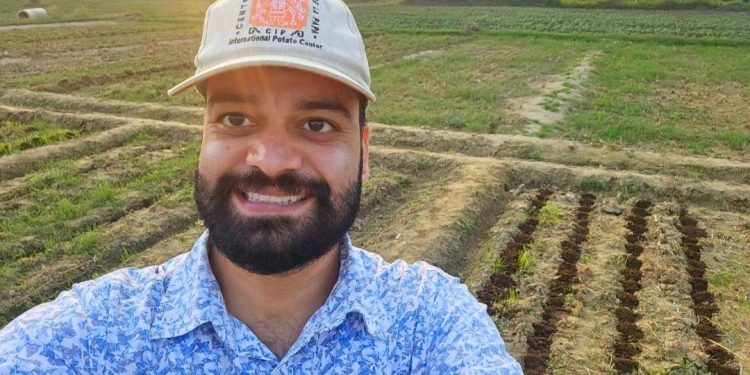#ZeroTillage #PotatoCultivation #SustainableFarming #ClimateChangeMitigation #FoodSecurity #EnvironmentalImpact #AgriculturalInnovation #WomenEmpowerment #ResourcePreservation #AgriculturalResearch
In the realm of modern agriculture, the paradigm of #Zero_tillage_potato cultivation is emerging as a game-changer, revolutionizing the way we grow one of the world’s staple crops. This innovative farming method goes beyond conventional practices, offering a sustainable approach that not only benefits farmers but also positively impacts the environment and addresses global challenges.
Zero tillage involves minimal disturbance to the soil, preserving its structure and organic content. This practice contributes significantly to soil health, promoting microbial activity and nutrient retention. Recent data from the #INTERNATIONAL_POTATO_CENTER’s research trial in Bihar, India, underscores the positive correlation between zero tillage and enhanced soil fertility.
Furthermore, this method fosters biodiversity by providing a conducive environment for beneficial organisms. The reduced use of machinery in zero tillage also minimizes habitat disruption, supporting the ecosystem within and around farms.
One of the critical advantages of zero tillage potato cultivation is its role in climate change mitigation. The traditional plowing of fields releases substantial carbon emissions into the atmosphere. By adopting zero tillage practices, farmers can significantly reduce their carbon footprint, contributing to global efforts to combat climate change.
The CIP research trial in Bihar highlights the measurable decrease in carbon emissions associated with zero tillage, showcasing its potential to be a sustainable solution in the fight against climate change.
Beyond immediate benefits, zero tillage contributes to long-term food security. By preserving soil health and fertility, farmers ensure sustained and quality potato yields. This, in turn, secures the availability of this essential crop for future generations, addressing concerns related to global food security.
Moreover, the reduction in water usage associated with zero tillage practices aligns with sustainable water conservation, crucial for agricultural resilience in the face of changing climates.
In conclusion, the adoption of #Zero_tillage_potato cultivation represents a significant stride towards sustainable farming. Its multifaceted benefits, from soil health improvement to climate change mitigation and long-term food security, underscore its importance in shaping the future of agriculture. As we embrace innovative approaches, zero tillage emerges as a beacon of hope, offering a path towards harmonizing agricultural practices with environmental sustainability.










